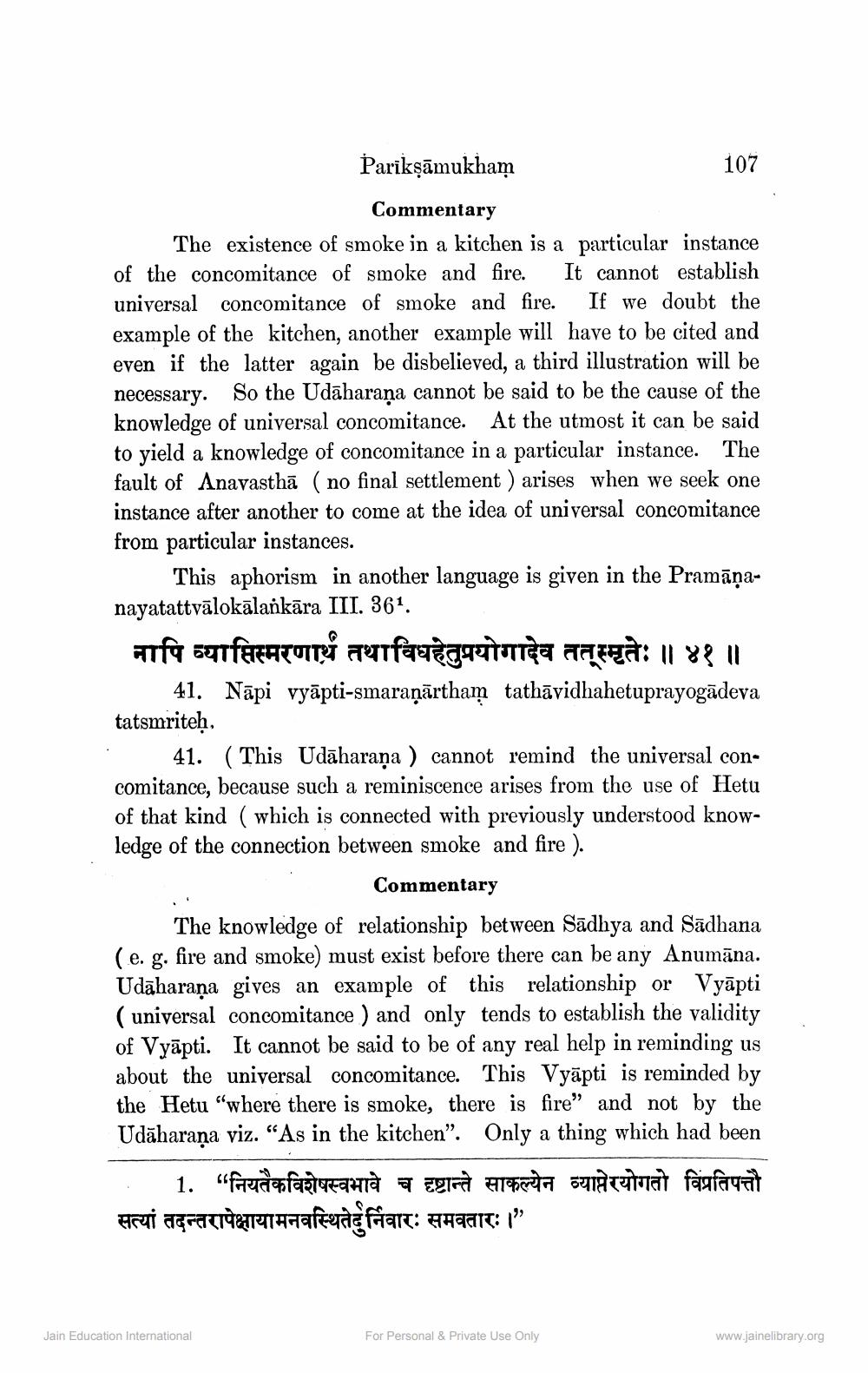________________
107
Parikşāmukham
Commentary The existence of smoke in a kitchen is a particular instance of the concomitance of smoke and fire. It cannot establish universal concomitance of smoke and fire. If we doubt the example of the kitchen, another example will have to be cited and even if the latter again be disbelieved, a third illustration will be necessary. So the Udāharaṇa cannot be said to be the cause of the knowledge of universal concomitance. At the utmost it can be said to yield a knowledge of concomitance in a particular instance. The fault of Anavasthā ( no final settlement ) arises when we seek one instance after another to come at the idea of universal concomitance from particular instances.
This aphorism in another language is given in the Pramāņanayatattvālokālankāra III. 364. नापि व्याप्तिस्मरणार्थ तथाविधहेतुप्रयोगादेव तत्स्मृतेः ॥ ४१ ॥
41. Nāpi vyāpti-smaraņārtham tathāvidhahetuprayogādeva tatsmrite”.
41. (This Udāharaṇa ) cannot remind the universal concomitance, because such a reminiscence arises from the use of Hetu of that kind ( which is connected with previously understood knowledge of the connection between smoke and fire ).
Commentary
The knowledge of relationship between Sādhya and Sādhana (e. g. fire and smoke) must exist before there can be any Anumāna. Udāharaņa gives an example of this relationship or Vyāpti ( universal concomitance ) and only tends to establish the validity of Vyāpti. It cannot be said to be of any real help in reminding us about the universal concomitance. This Vyāpti is reminded by the Hetu "where there is smoke, there is fire” and not by the Udāharaṇa viz. "As in the kitchen”. Only a thing which had been : 1. "Farera afaste and a El Franta sulatetnat faufacat सत्यां तदन्तरापेक्षायामनवस्थितेनिवारः समवतारः।"
Jain Education International
For Personal & Private Use Only
www.jainelibrary.org




